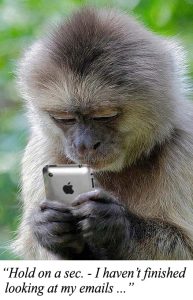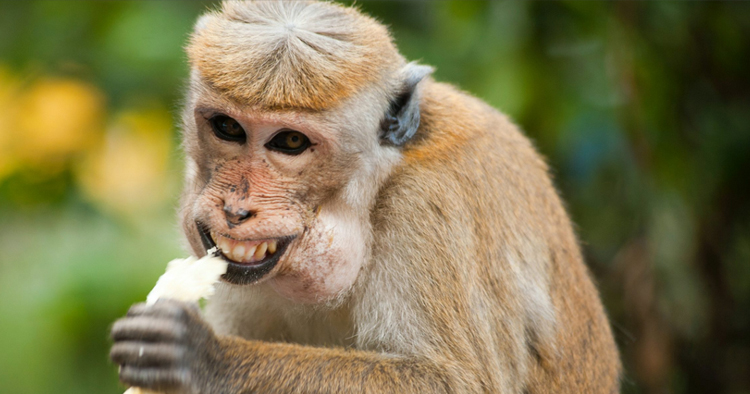Monkey Business
How do our transactional relationships with gods work? Ask a monkey.
This article first published in The Skeptic in February 2021
Back when it wasn’t politically-incorrect to have a village idiot, there was a village idiot.
 People would gather to watch the twerp being offered either an old penny (which was quite large) or an old thrupenny (which was smaller). The halfwit would take the larger coin every time. What a fool!
People would gather to watch the twerp being offered either an old penny (which was quite large) or an old thrupenny (which was smaller). The halfwit would take the larger coin every time. What a fool!
One day, a passer-by said: “Why don’t you take the thrupenny? It’s worth more!” To which the simpleton replied: “How often do you think they’d offer me free money if I did that?”
The meaning of the apocryphal story is clear – the ‘fool’ was clever than the delighted dullards he regularly entertained. He had intelligently calculated the value of his trick.
Calculating value is a beneficial ability and, according to all the –ologists, it’s probably something we do naturally. We have an idea what things are worth and we regularly exchange them. We reciprocate.
Like-for-like is easy – you give me one kilo of flour and I’ll give you one kilo back next week when you have none & I have extra. But we can do it with other stuff too. Things can be more valuable because they’re more potent or concentrated, when they’re more difficult to collect, when there has been risk associated with their acquisition, when there has been a manufacturing effort invested in them …
The evolutionary benefit of social animals being able to calculate value is clear. We live in social networks where we support others in their hard times and they support us in ours. Freeloaders could vampirise the whole system if we didn’t have a mental note of who owes what and how much. So you’ll probably invest a nominal stake while opening a relationship with an untested human. But you won’t continue to give if your investment isn’t repaid. In the words of the Bard*: “We won’t get fooled again”.
People are also able to use ‘tokens’, objects that are symbols used to request specific rewards.
And so can apes and primates.
Studies that demonstrate this have been in the lab, so their validity could be challenged. But what if there were a population of primates who had learned the use of tokens and also had a concept of a scale of value, this time in the wild?
A fascinating study by Leca, Gunst, Gardiner and Wandia, published by the Royal Society comes close. A group of long-tailed macaques at UluwatuTemple in Bali, Indonesia are free-ranging animals accustomed to humans. For a long time, it has been observed that they steal items and barter them back again for food.
This study goes beyond the already-known anecdotes to quantify the behaviours and the demographics of the individuals exhibiting them. This can “provide insights into the cognitive underpinnings of economic behaviour”.
I was very interested in the fact that the stolen tokens which had a higher value for humans eg. a mobile phone as opposed to a flip-flop, were traded for food that carried a higher value to the macaques. (Bear in mind that you don’t get your iPhone back until you accept their terms.)
 The study importantly also revealed that success came with age. Older individuals were both better than younger ones at acquiring human belongings to, er, ‘borrow’ in the first place, and also at preferentially selecting those higher value items. So this is a learned skill.
The study importantly also revealed that success came with age. Older individuals were both better than younger ones at acquiring human belongings to, er, ‘borrow’ in the first place, and also at preferentially selecting those higher value items. So this is a learned skill.
The macaques understood the advantage of conducting the process near an experimenter or one of the Temple staff – somebody who knew the rules, in other words. They also returned items in good condition having, one supposes, learned the lesson that a dead iPhone is no better than a paperweight.
Back to people: we don’t just attempt to exchanges with people, but with god/s too. What other sense does a sacrifice make? God/s owns everything so you can’t give it/them anything other than your own deprivation; whether that deprivation is a tax to the temple, your own self-restraint from pleasure, or the forfeiture of an item that you would otherwise find useful.
This is your opening move in what you hope will be a transactional relationship. Maintaining faith necessarily involves some conceptual gymnastics when the reward from God/s doesn’t appear.
At least when you trade with monkeys, they seem to know the rules.
* Pete Townsend, of course. Although other bards include David Bowie, Roger Waters and David Gilmour.

